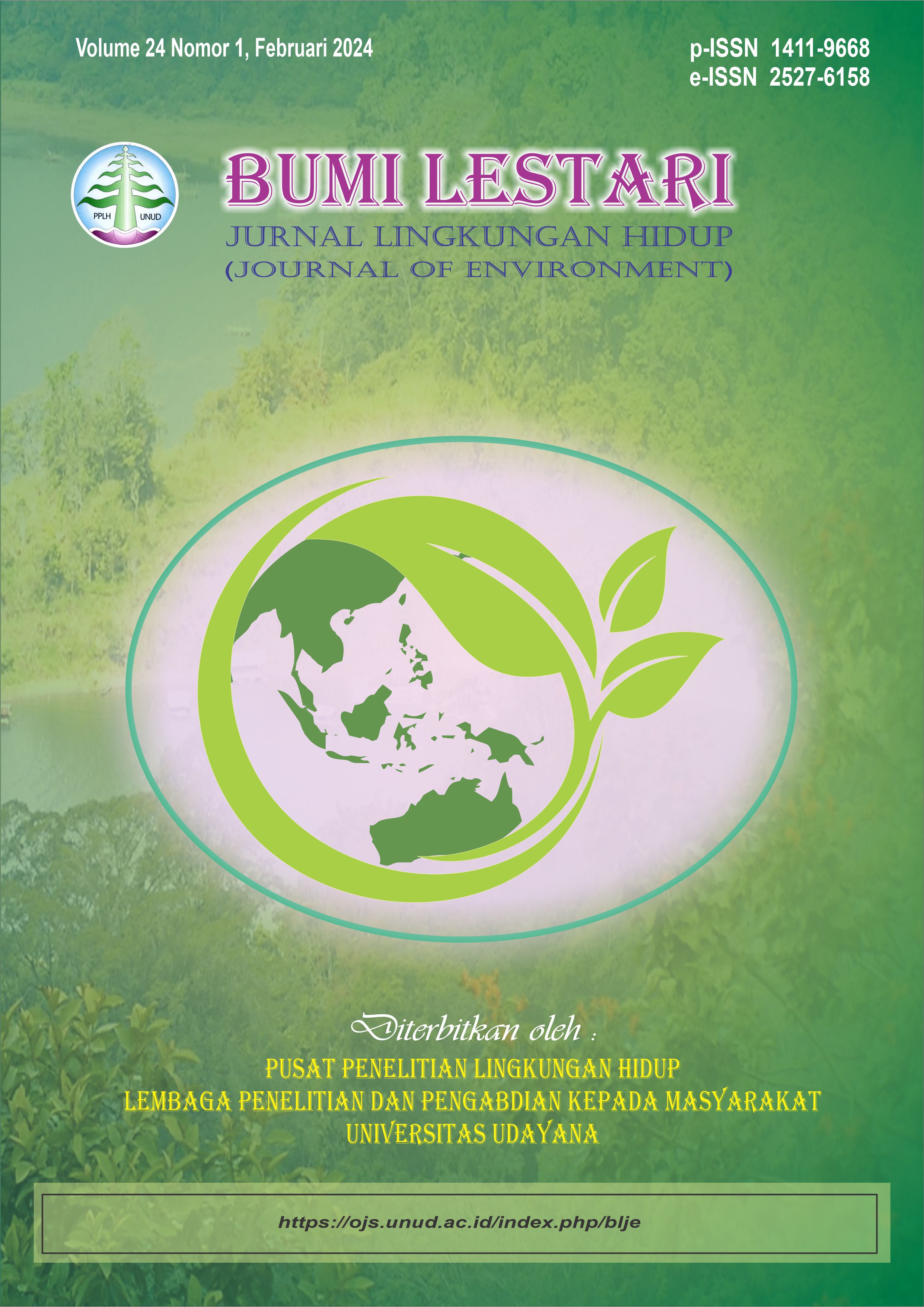Penilaian Risiko Sanitasi Kabupaten Badung Menggunakan Pendekatan EHRA (Environmental Health Risk Assessment)
Abstract
Proper and safe sanitation is the main foundation for public health and improving the quality of life. Although the majority of Indonesia's population has access to adequate sanitation, significant challenges are still faced in achieving safe and quality sanitation. This research aims to provide a comprehensive picture of sanitation conditions in Badung Regency, Bali Province, by focusing on key factors such as water sources, domestic wastewater, waste, standing water, and clean and healthy living behavior (PHBS). Using the Environmental Health Risk Assessment (EHRA) approach, this research involved surveys in six sub-districts with a total of 62 villages/urban village, involving 2480 female respondents aged 18-60 years as housewives. Data collected involved interviews, observations and questionnaires, with analysis carried out using EHRA tools. The research results show that Badung Regency faces five main challenges in sanitation, namely varied water sources, awareness of domestic wastewater which still needs to be improved, solid waste and waste management problems, risk of waterlogging and heterogeneous levels of PHBS in the community. The results of the Sanitation Risk Index (IRS) analysis show a number of villages/urban village with varying levels of risk, namely 18 villages/urban village with low risk, 14 villages/urban village with moderate risk, 2 villages/urban village with high risk and 28 villages/urban village with very high risk.
Downloads
Authors who publish with this journal agree to the following terms:
- All articles published by Bumi Lestari Journal of Environment and Environmental Reseach Center Udayana University are made available under an open access license worldwide immediately. This means everyone has free and unlimited access to the full-text of all articles published in Bumi Lestari Journal of Environment, and everyone is free to re-use the published material given proper accreditation/citation of the original publication. Open access publication is supported by authors' institutes or research funding agency by payment of a comparatively article processing charge for accepted articles (See Author Fees). Bumi Lestari Journal of Environment and Environmental Reseach Center Udayana University publish articles under the Creative Commons Attribution License.
- Authors are able to enter into separate, additional contractual arrangements for the non-exclusive distribution of the journal's published version of the work (e.g., post it to an institutional repository or publish it in a book), with an acknowledgement of its initial publication in this journal.
- Authors are permitted and encouraged to post their work online (e.g., in institutional repositories or on their website) prior to and during the submission process, as it can lead to productive exchanges, as well as earlier and greater citation of published work (See The Effect of Open Access).





